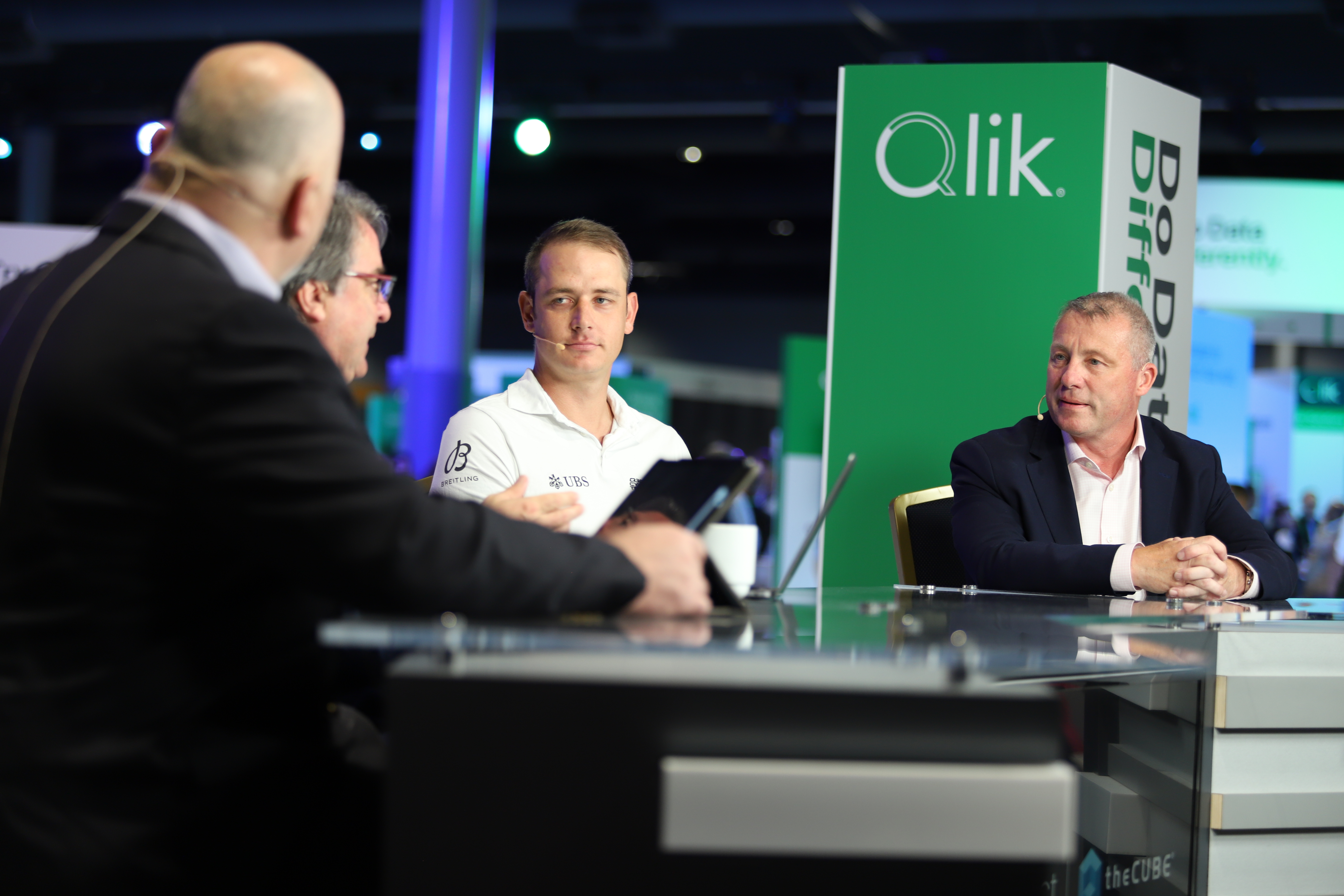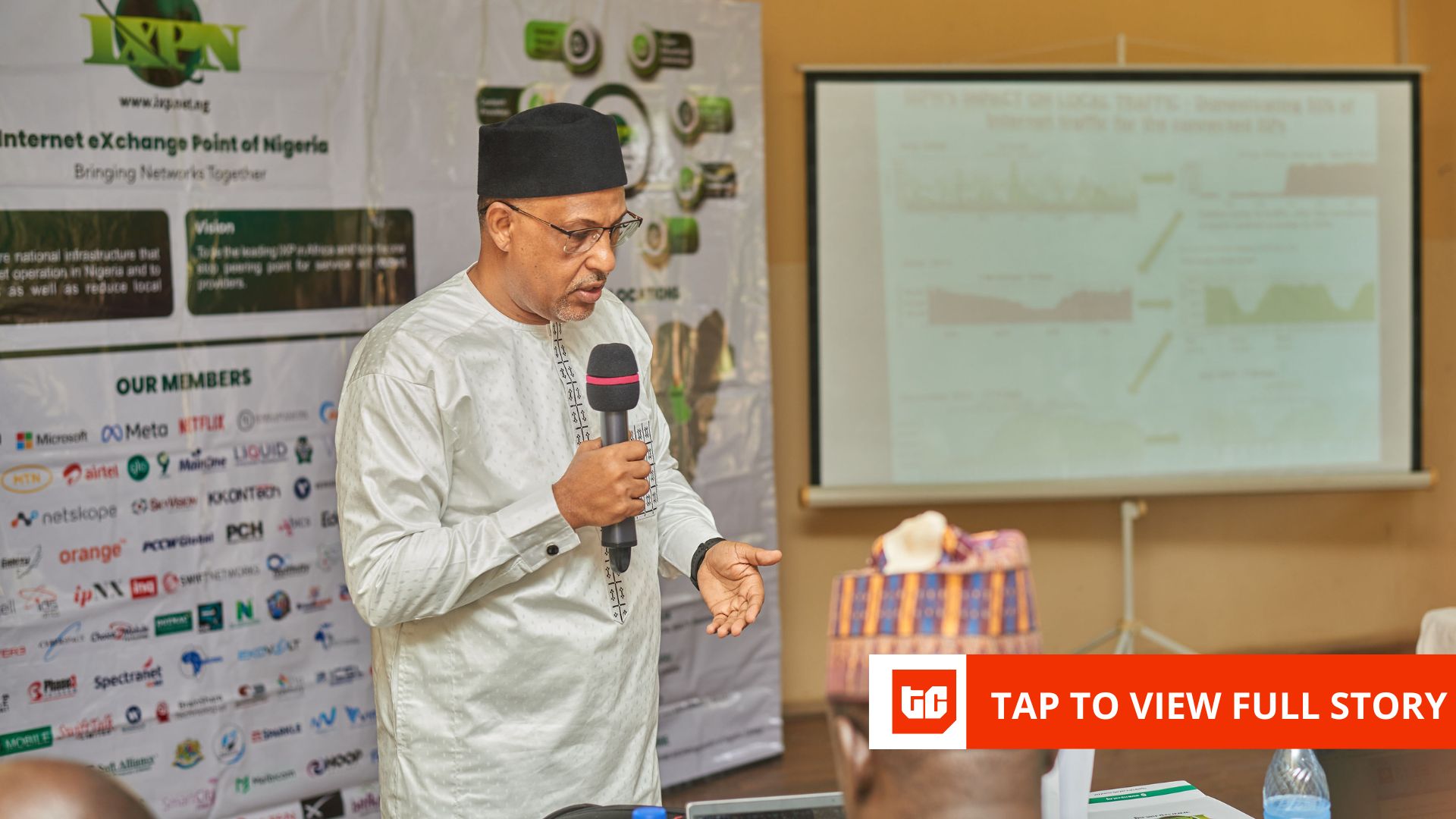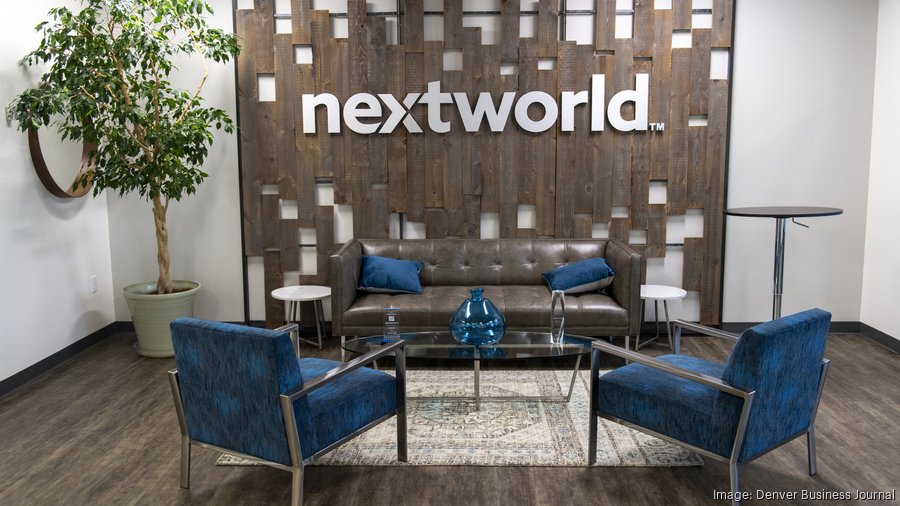While all sports demand impeccable accuracy, timing and precision, cycling takes those requisites to new heights. For a professional cycling team, fractions of a second separate wins from losses. True competitors in the space are now relying on data analytics to enhance key performance domains, such as rider health and training, bike engineering, and strategic decision-making.
The Q36.5 Pro Cycling Team’s Adam Nunn discusses the data advantage with theCUBE.
A strong example of this sports and data analytics pairing is QlikTech International AB and the Q36.5 Pro Cycling Team. Peeking through the curtains reveals how real-time analytics, governed data and intelligent automation are revolutionizing performance, logistics and talent scouting in professional cycling.
“We need to make smart decisions,” said Adam Nunn (pictured, second from right), digital strategist at Q36.5. “We have all of this data that comes into play, and we need to make the rider and the bike work, and we do that by making smart decisions. We’ve partnered with Qlik, and we use a lot of the data we gather from all places. We allocate it to a dashboard to see and make smart decisions. To minimize that marginal gain, it’s just crucial.”
Nunn and Martin Tombs (right), vice president, global go-to-market for analytics and field chief technology officer, EMEA, at Qlik, spoke with theCUBE’s John Furrier and Bob Laliberte at Qlik Connect, during an exclusive broadcast on theCUBE, News Media’s livestreaming studio. They discussed how the Q36.5–Qlik collaboration exemplifies the new frontier in sports, where data isn’t just an accessory but a competitive differentiator. (* Disclosure below.)
Data analytics becomes a strategic differentiator in sports
Q36.5 scrapes together data from a multitude of sources — public platforms, internal sensors, third-party apps and AI models — to inform strategic decisions. But data only becomes powerful when it’s usable. A major challenge, therefore, is helping staff across cultures and disciplines — mechanics, coaches and nutritionists — understand and trust analytics, according to Nunn.
“We have players in our industry that are old school,” he said. “They often make decisions based on feel and experience. And unfortunately, sometimes they see all of these lines of code and data and get a bit taken aback by it. So the key for us is to just calm them down, show them the data and make them understand that all of this information is going to benefit your role and your job.”
Simplifying that shift to embracing data analytics is the Qlik advantage. Qlik’s platform handles vast, diverse data across cloud environments with a focus on governance and accuracy. Its “Do Data Differently” initiative also prioritizes visualization tailored to user experience — vital when riders and support staff need to grasp insights instantly on the road, not pore over pie charts, according to Tombs.
“There are a few age ranges here, you’ve got to display that the way that I want to see it,” he said. “Cyclists are young, fit guys. They don’t know what pie charts and bar charts are. You’ve got to display that data the way they want to read it, because they’ve got to understand it instantly — they have to understand that differently. We start from that data to having people understand the outcome that they’re looking for.”
Here’s the complete video interview, part of News’s and theCUBE’s coverage of Qlik Connect:
(* Disclosure: TheCUBE is a paid media partner for Qlik Connect. Neither QlikTech International AB, the sponsor of theCUBE’s event coverage, nor other sponsors have editorial control over content on theCUBE or News.)
Photo: News
Your vote of support is important to us and it helps us keep the content FREE.
One click below supports our mission to provide free, deep, and relevant content.
Join our community on YouTube
Join the community that includes more than 15,000 #CubeAlumni experts, including Amazon.com CEO Andy Jassy, Dell Technologies founder and CEO Michael Dell, Intel CEO Pat Gelsinger, and many more luminaries and experts.
THANK YOU









